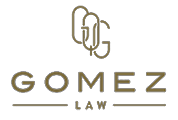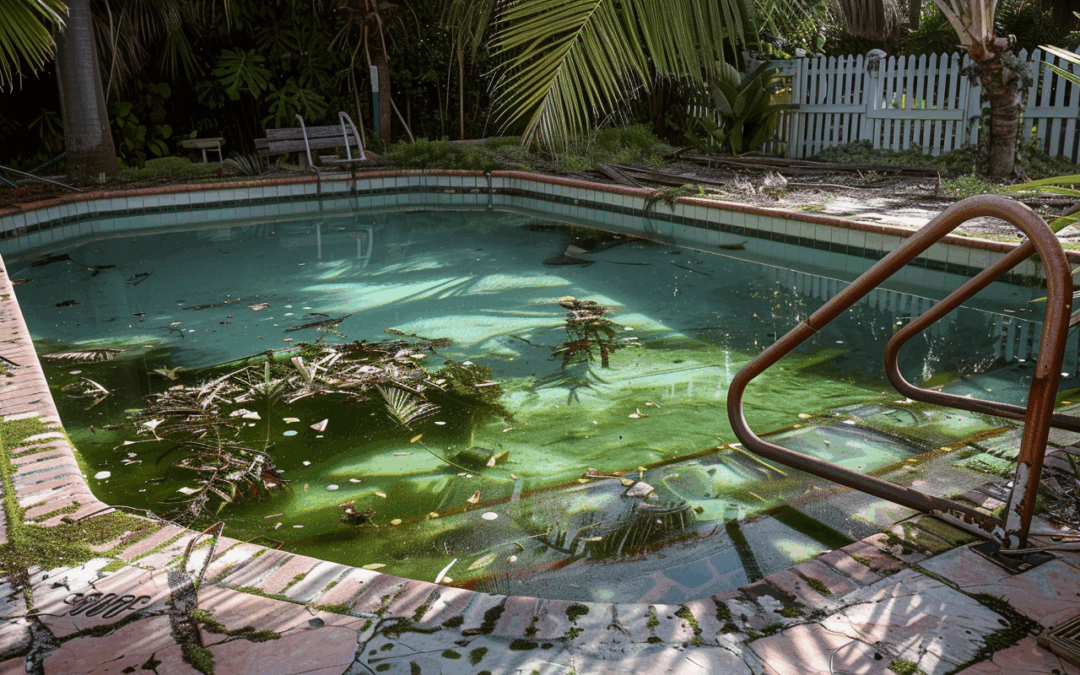The pool deck is cracked and dangerous. The tennis court nets are torn and the surface is deteriorating. The parking garage lighting is broken, creating safety hazards. When you complain to your condo association, they tell you, “We don’t have the budget right now” or “That’s not a priority.” Sound familiar? If you’re a Florida condo owner, you’ve likely encountered associations that neglect their duty to maintain common areas while continuing to collect your monthly fees.
The truth is, associations can’t simply ignore their maintenance obligations because of budget concerns or other priorities. Florida law is clear about when associations must maintain common elements and when they’re liable for damage or injuries caused by their negligence. Understanding these rules and knowing how to fight back can protect you from injury, preserve your property values, and hold your association accountable.
Don’t let your association collect fees while ignoring dangerous conditions in your common areas. Call the Miami COA Lawyers at Gomez Law today for a free consultation.
The Legal Foundation: What Florida Law Requires Associations to Do
Florida condominium law creates specific, non-negotiable duties for associations regarding common area maintenance. Florida Statute 718.113 mandates that associations must inspect, maintain, and preserve association property. This isn’t a suggestion, it’s a legal requirement that associations cannot ignore or delegate away.
Here’s the critical distinction every condo owner must understand: when dealing with maintenance issues, look to your declaration of condominium to determine responsibility. When dealing with insurance claims after damage occurs, look to Florida Statute 718.111(11).
This distinction matters because associations often try to confuse these two separate legal frameworks. They’ll point to insurance coverage and claim this somehow reduces their maintenance responsibilities. This is legally wrong. Insurance coverage doesn’t excuse maintenance negligence.
The declaration of condominium typically makes the association responsible for maintaining pools, tennis courts, fitness centers, clubhouses, parking areas, sidewalks, landscaping, and other shared amenities. When these common areas deteriorate due to poor maintenance, the association cannot simply claim budget constraints or shift responsibility to individual owners.
Florida Statute 718.111(11) governs insurance responsibilities after damage occurs, but it doesn’t erase liability when injuries or property damage result from the association’s failure to maintain common areas properly.
Common Association Failures That Create Liability and Damage
Across Florida, certain common area maintenance failures repeatedly cause injuries, property damage, and decreased property values. These preventable problems follow predictable patterns:
Pool and spa maintenance failures create serious safety and legal risks. Associations that defer pool resurfacing, ignore broken tile, or fail to maintain proper chemical balances face potential drowning incidents, slip-and-fall injuries, and disease transmission. The Virginia Graeme Baker Pool and Spa Safety Act requires specific drain retrofits to prevent entrapment injuries, and associations that ignore these federal requirements face both liability and fines.
Tennis court and recreational facility neglect leads to injuries and unusable amenities. Cracked courts with uneven surfaces cause twisted ankles and falls. Broken nets, damaged fencing, and poor lighting create additional hazards. When associations defer maintenance on these expensive amenities, they effectively steal the recreational value owners paid for.
Parking garage and roadway deterioration creates both safety hazards and property damage. Potholes damage vehicles, poor lighting invites crime and accidents, and structural issues with garage ceilings or support beams can cause catastrophic failures. Water infiltration from poor drainage compounds these problems.
Sidewalk, pathway, and common area landscaping issues cause frequent slip-and-fall accidents. Uneven pavement, broken steps, overgrown vegetation blocking walkways, and inadequate lighting all create liability for associations. Tree roots that lift sidewalks or branches that fall during storms represent foreseeable maintenance failures.
Clubhouse and fitness center neglect reduces property values and creates health risks. Broken exercise equipment, HVAC failures, plumbing problems, and deferred maintenance on flooring or fixtures all impact the quality of life associations are supposed to provide.
The pattern is always the same: associations defer maintenance to save money in the short term, but the costs multiply when preventable problems cause injuries, property damage, or require emergency repairs.
The Budget Excuse: Why Financial Constraints Don’t Excuse Neglect
When confronted about deteriorating common areas, associations often claim they lack funds for proper maintenance. This excuse fails both legally and practically for several reasons.
Budgeting for maintenance is a fiduciary duty. Board members have a legal obligation to plan for predictable maintenance needs and fund reserves appropriately. When boards chronically underfund maintenance or spend association money on unnecessary projects while ignoring safety issues, they breach their fiduciary duties to owners.
Deferred maintenance costs more than preventive maintenance. A pool that needs resurfacing doesn’t improve with time. Tennis courts with minor cracks become major reconstruction projects when ignored. Associations that defer maintenance often face emergency repairs at multiple times the cost of timely upkeep.
Safety obligations cannot be deferred. When common area maintenance failures create dangerous conditions, associations face immediate liability regardless of budget constraints. A slip-and-fall injury from broken pool deck tiles costs far more than preventive repairs.
Assessment authority exists for necessary repairs. Florida law gives associations the power to levy special assessments for needed maintenance and repairs. Boards that refuse to assess owners for necessary maintenance while allowing dangerous conditions to persist fail in their basic duties.
The correct legal analysis doesn’t ask whether the association can afford maintenance. It asks whether they’re fulfilling their legal obligations to maintain common areas safely and properly.
Your Legal Arsenal: How to Hold Associations Accountable
When associations fail their common area maintenance duties, Florida law provides multiple avenues for accountability:
Breach of Contract represents your strongest claim in most cases. The declaration of condominium is a contract between the association and all unit owners. When the association fails to maintain common areas as required by the declaration, they’ve breached their contractual obligations. You can recover damages for decreased property values, loss of amenity use, and personal injuries caused by their breach.
Negligence applies when the association’s maintenance failures cause injuries or create dangerous conditions. To prove negligence, you must show the association owed you a duty (to maintain common areas safely), they breached that duty (by allowing dangerous conditions to persist), and their breach caused your damages. Negligence claims can recover medical expenses, lost wages, pain and suffering, and property damage.
Breach of Fiduciary Duty targets board members who fail to act in the association’s and owners’ best interests. When board members ignore obvious maintenance needs, waste association funds on unnecessary projects while neglecting safety issues, or make decisions that serve their personal interests over community welfare, they breach their fiduciary obligations.
Statutory Violations provide direct claims when associations violate Florida condominium law. Florida Statute 718.113’s maintenance requirements create statutory duties, and violations can support both damage claims and injunctive relief compelling immediate repairs.
Injunctive Relief can force associations to make necessary repairs immediately rather than waiting for trial. When dangerous conditions exist in common areas, courts can order emergency repairs to protect residents while litigation proceeds.
These legal theories often overlap and can be pursued simultaneously. The key is building a strong case that addresses both the association’s specific failures and the full scope of damages you’ve suffered.
Your Action Plan: Protecting Yourself and Building Your Case
Documentation forms the foundation of any successful claim against your association regarding common area maintenance. Every communication with your association should be in writing, creating a paper trail that proves their knowledge of problems and failure to act.
Photograph everything related to maintenance issues and dangerous conditions. Time-stamped photos showing deteriorating pool areas, broken tennis courts, damaged parking areas, and other neglected common elements provide powerful evidence of association negligence. Document the progression of problems over time to show the association’s ongoing failure to address known issues.
Report safety issues formally in writing to create legal notice. When you observe dangerous conditions like broken pool tiles, uneven walkways, or malfunctioning equipment, notify the association immediately in writing. Keep copies of all correspondence and document their responses or lack thereof.
Know the deadlines that govern your claims. Florida’s statute of limitations generally gives you four years for breach of contract claims and four years for negligence claims, but these deadlines can vary based on specific circumstances. Personal injury claims may have shorter deadlines, so don’t delay if you’ve been injured due to poor maintenance.
Attend board meetings and document discussions about maintenance issues. When boards acknowledge problems but refuse to authorize repairs, their statements become evidence of their knowledge and deliberate indifference to dangerous conditions.
Get repair estimates to document the cost of needed maintenance. Professional assessments of pool repairs, tennis court resurfacing, or parking area improvements help establish both the scope of the association’s neglect and the financial impact on property values.
When to Seek Professional Legal Help
At Gomez Law, we specialize in holding Florida condo associations accountable when they neglect their common area maintenance obligations. For over 15 years, we’ve represented condo owners facing deteriorating amenities, dangerous conditions, and associations that refuse to fulfill their basic duties.
We work completely on contingency, meaning you pay no upfront fees, we only get paid when you win. While other HOA lawyers charge $300-500 per hour upfront, our contingency model allows you to take on your association without financial risk.
Our approach targets results. We investigate before we litigate, reviewing maintenance records, photographing conditions, consulting with experts, and building a complete case file before taking action. We focus on forcing associations to make immediate repairs while pursuing compensation for the damages their neglect has caused.
“Mr. Gomez has been part of my legal team since 2018. I would highly recommend Mr. Gomez to anyone needing legal counsel.” – Frank T., Google Review
Led by Eduardo Gomez, who earned his Juris Doctor from The George Washington University Law School and has over 20 years of experience in complex litigation, our firm has the expertise to handle challenging association disputes. Hablamos Español and proudly serve Miami’s Hispanic community with clear communication and trusted legal help.
Take Control of Your Common Areas
Associations cannot ignore their maintenance duties simply because of budget concerns or other priorities. When they fail to maintain common areas properly and dangerous conditions result, they’re responsible for the consequences, not you.
Florida law provides strong protections for unit owners, but only if you know your rights and take action to enforce them. Don’t let your association collect monthly fees while allowing the amenities and common areas you paid for to deteriorate. Document their failures, understand your legal options, and hold them accountable for their obligations.
Your Florida condo association disputes deserve experienced representation. At Gomez Law, we are dedicated to defending homeowners against associations that neglect their maintenance duties. Let us fight for safer common areas and the amenities you deserve.
Ready to fight back against association maintenance failures? Contact Gomez Law today for your free consultation. We only represent homeowners, never associations, and we only get paid when you win.

